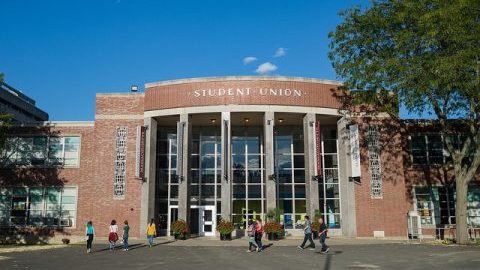In response to student businesses, student agencies, and Registered Student Organizations facing problems with administration over space for student activities, representatives of Student Engagement and Leadership and the Center for Student Businesses met with the Collegian to release interim and long-term plans to answer the needs of students. Plans include a Facilities Special Committee and a new permanent storage structure for student groups.
“Whenever we hear the voice of the students, we have to listen to it,” said Johnny Tooson, the executive director of SEL. Tooson has been a part of the new Student Union since its inception and is responsible for ensuring that student groups are properly supported through SEL.
The most common complaint among student groups was the lack of consistent communication with administrators.
“We don’t have a centralized location for information about the Student Union, so one of the ideas that we’re trying to work towards is to establish a website,” Tooson explained. The proposed Student Union website would contain an “active directory” of contacts for student groups to reach out to with specific problems, which would provide student groups with fast, reliable responses to inquiries.
“We’re actually working on that internally with the Student Businesses … a lot of those contacts have changed,” said Corey Walters, the director of the Center for Student Business. He believes that an updated registry of University and external contacts made accessible to students businesses and organizations will significantly improve communication issues.
The website would work in tandem with the newly created Facilities Special Committee, a group of student and staff representatives that seeks to directly address the concerns of student groups.
SEL Associate Director Lloyd Henley and Walters will chair the committee and they are finalizing a representative from student business, the SGA, and other student groups to join them.
“We’re trying to get as close to a 50/50 ratio with students and staff so that the student voice is protected and heard at all times,” Tooson said. Tooson has “high hopes for the committee” and expects it to be a centralized place that student groups can go to with any issues related to the Student Union. He added that the committee would address the issue such as the personalization and decoration that the WMUA radio station, Earthfoods Café and People’s Market raised.
Tooson described the policies that prohibited students from using nails in walls and hanging signs on windows as “baseline university policies” and that the committee would be open to speaking with student groups to create the best policies for students and the longevity of the building.
Administration also discussed the input that students had in the creation of the student union and the concessions that needed to be made.
“Through the process, students did have a seat at the table,” Tooson said. He explained that most of the representation at the time of the creation of the new Student Union was through the SGA and focus groups. “Everyone had an opportunity to provide input, but not everyone’s vision was captured. There was a delicate balance with that.”
“We knew at the time that the footprint of the building wasn’t getting any larger,” Henley said. With a great number of student organizations and student resource centers needing space in the Student Union, the question became, “How are we going to fit all this in here?”
Ultimately, Henley and other administrators agreed that most of the space should go to the students, and that administrative offices and conference rooms should be cut back on so that the $25 million that students contributed to the Student Union was used for the benefit of student groups.
However, while the new space is beginning to be used by student groups as intended, administration is exploring other solutions to specific space requirements.
According to Tooson and Henley, the Student Union was “not built with storage in mind.” Student groups like the Science Fiction Society, UMass Theatre Guild, and the Anime Club all have specific storage requirements for their materials, and Tooson outlined two long-term solutions to the unique problems.
First, Tooson detailed a plan for a permanent storage space to be built on campus to accommodate the needs of RSOs that have materials that the Student Union storage lockers can’t hold. The plan to “build or acquire long term storage” would be costly and would involve “a lot of moving parts,” but Tooson believes that a dedicated storage space for student groups is attainable in the long term.
Second, administration is exploring possibilities of pairing up student organizations with academic departments that have related values. In regard to the Sci-Fi Society needing space for their library of sci-fi books, Tooson is hoping to find “an academic department that aligns with that type of reading” that could provide space for the library.
Student groups with issues concerning storage or facility use are encouraged to reach out to Tooson.
Lucas Ruud can be reached at [email protected].




















